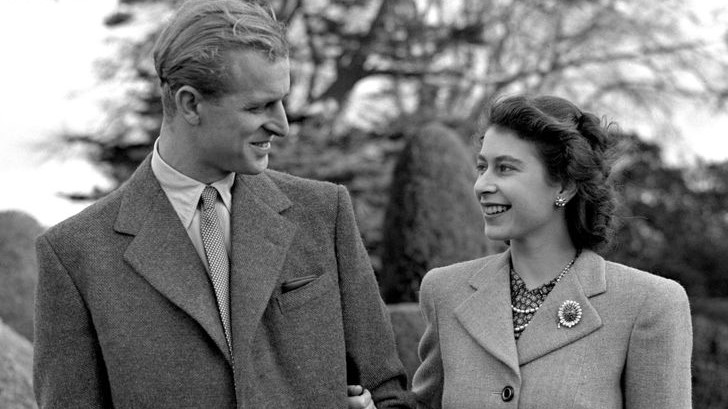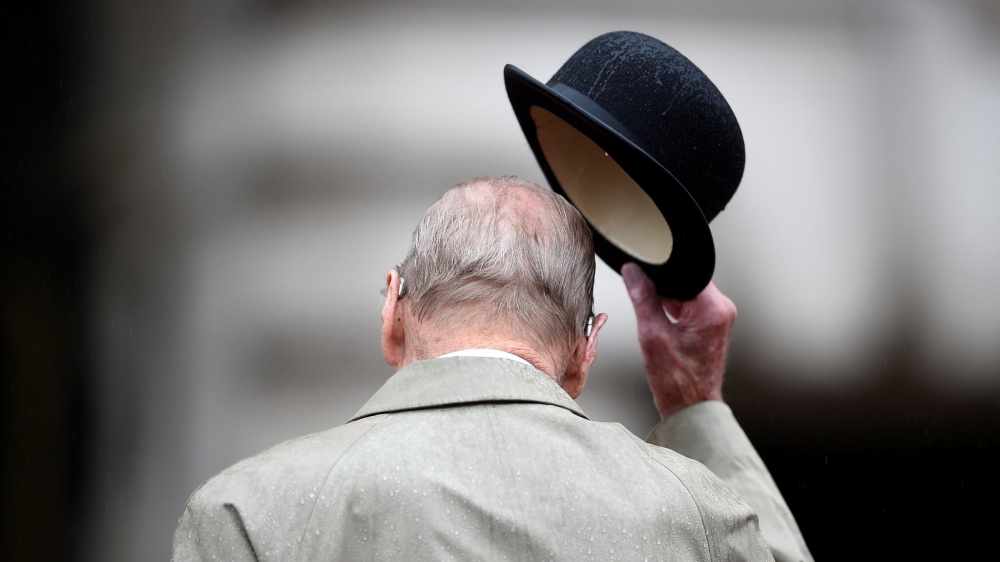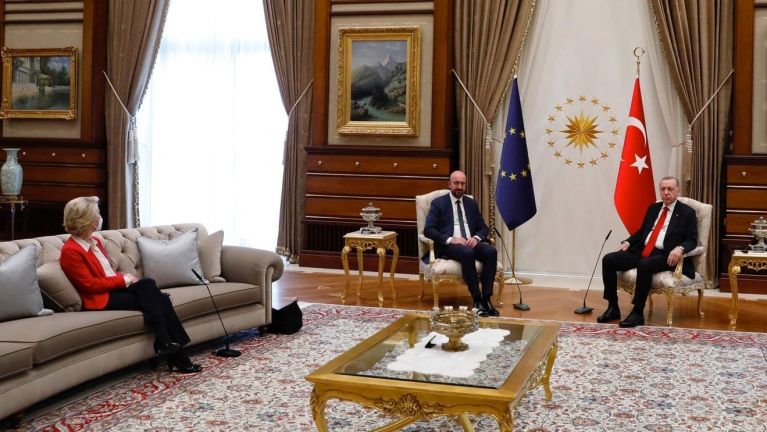On April 9th Prince Philip, Duke of Edinburgh, passed away peacefully, just shy of living a full century. He would have turned 100 on June 10th.
Within minutes of the announcement of his death, Britons flocked to Buckingham Palace in a show of compassion. Many deposed flowers, before being asked not to, due to the Covid pandemic. But by Sunday noon so many people had come that the street leading to Windsor castle had to be closed to traffic.
Newspapers and media all over the world published lengthy obituaries. The Duke, as he was mostly called, had had heart surgery in early March. At that point, any media outlet that did not yet have an obituary in reserve now rushed to produce one. But most of these articles had been prepared months, even years earlier, and were now quickly updated and published.
They inevitably focused on his legendary gaffes – he had been regularly rude to foreigners, obviously a bonus in Britain, once famously greeting German Chancellor Helmut Kohl as „Herr Reichskanzler”. They highlighted his flawless devotion to his wife, the Queen.
Others pointed out that he had arrived in the country as the ultimate foreigner, a homeless and penniless boy from a broken marriage. A Greek Prince of Danish, but mainly German ancestry. And yet over time, he came to represent Britishness itself. As the days pass, and the weight of this loss settles in, a pensive mood is spreading:
„The census results next year will show a society that has seen greater demographic change than the preceding four or five thousand years combined”, wrote journalist and book author Ed West in his obituary on ”unherd.com”. The „second Elizabethan age”, he added, was „characterized more than anything by a transformational movement of people.”
Prince Philip was a product of that age of whirling change and yet appeared to represent a Britain that will always be itself. He had fought in the Second World War as a navy officer. He liked to hunt and sail and ride on horseback. He was loyal and unsentimental and steadfast in adversity.
His childhood had been one of permanent crisis. Born 1921 on Corfu as a Prince and potential heir to the throne of both Greece and Denmark, his family fled to France in 1922 when Greece lost the Greco-Turkish war. Philip’s father, Andrew of Greece and Denmark, brother to King Constantine of Greece, had commanded a division in that war. Constantine had commanded the army, and both were made responsible for the defeat and expelled from the country.
In France, the marriage of his parents fell apart. Andrew, his father, eloped with a mistress to Monte Carlo. Philip’s mother, Princess Alice von Battenberg, was diagnosed with schizophrenia. From there on, Philip was passed around from relative to relative. His cousin, Princess Alexandra of Yugoslavia, called him „a dog, always in search of a basket” to sleep in. Philip grew up in France and Germany and ended up in England, where a maternal uncle, Admiral Louis Mountbatten helped him start a career in the navy. Mountbatten is the anglicized version of Battenberg – Louis had been born a Prince Battenberg. Philip also adopted that name: Mountbatten.

Photo: PA Images.
Via this uncle, Philip met Elizabeth. When King George V. toured the Royal Navy College in Dartmouth in 1939, Philip, then a cadet, was asked to escort the King’s two daughters, Elizabeth and Margaret. Elizabeth is said to have fallen in love that day. She was thirteen. In 1946, after years of writing letters to each other, Philip asked for her hand.
But the King consented, on condition that Philip relinquishes his Danish and Greek titles. Instead, he became the „Duke of Edinburgh”. The Queen just called him „the Hun”, a pejorative term for German. That was the kind of gruff humor Philip himself would later become famous for.
The rest is history – and 73 years of devotion to each other. When George V. died and Elizabeth became Queen Elizabeth II. in 1952, Philip’s public role changed to that of „prince consort”. But he was far more than that. Elizabeth has called him her „rock”, on whom she leaned for support, her most trusted advisor. Together they would go through her more important speeches, and at times, he was instrumental in guiding political decisions. His extensive connections in Germany made him the Queen’s „Germany expert”. Indeed, he contributed decisively to Anglo-German reconciliation after the war and discreetly prepared the stage for the Queen’s first visit to Western Germany, in 1965.
The marriages of their sons Charles and Andrew broke. Their grandson Harry decided to turn his back on his family, and thus the nation, rather than risk conflict with his Hollywood celebrity wife Meghan Markle.
Philip was the ultimate representative of the „keep calm and carry on” generation. The phrase is a slogan from a World War II propaganda poster created in 1939. That generation is dying out fast. In today’s emotion-driven world, people mostly don’t stay calm and don’t necessarily carry on, either. Something important is disappearing. The Duke’s death has made that loss palpable.

In Hungary, on 6 May 1990.
As Britons prepare for his funeral service on April 17th – a ceremony limited to 30 participants due to Covid restrictions – they ponder a future without Philip’s stiff upper lip under all circumstances, and, one day, without Queen Elizabeth. Can England remain England?
If the „Hun”, who came as a Greek and Danish Prince, could transform himself into an ultimate symbol of what constitutes Britishness, then all hope is not lost. Britons may keep calm and carry on.
This article is available in Hungarian.
Cover: NYT.










